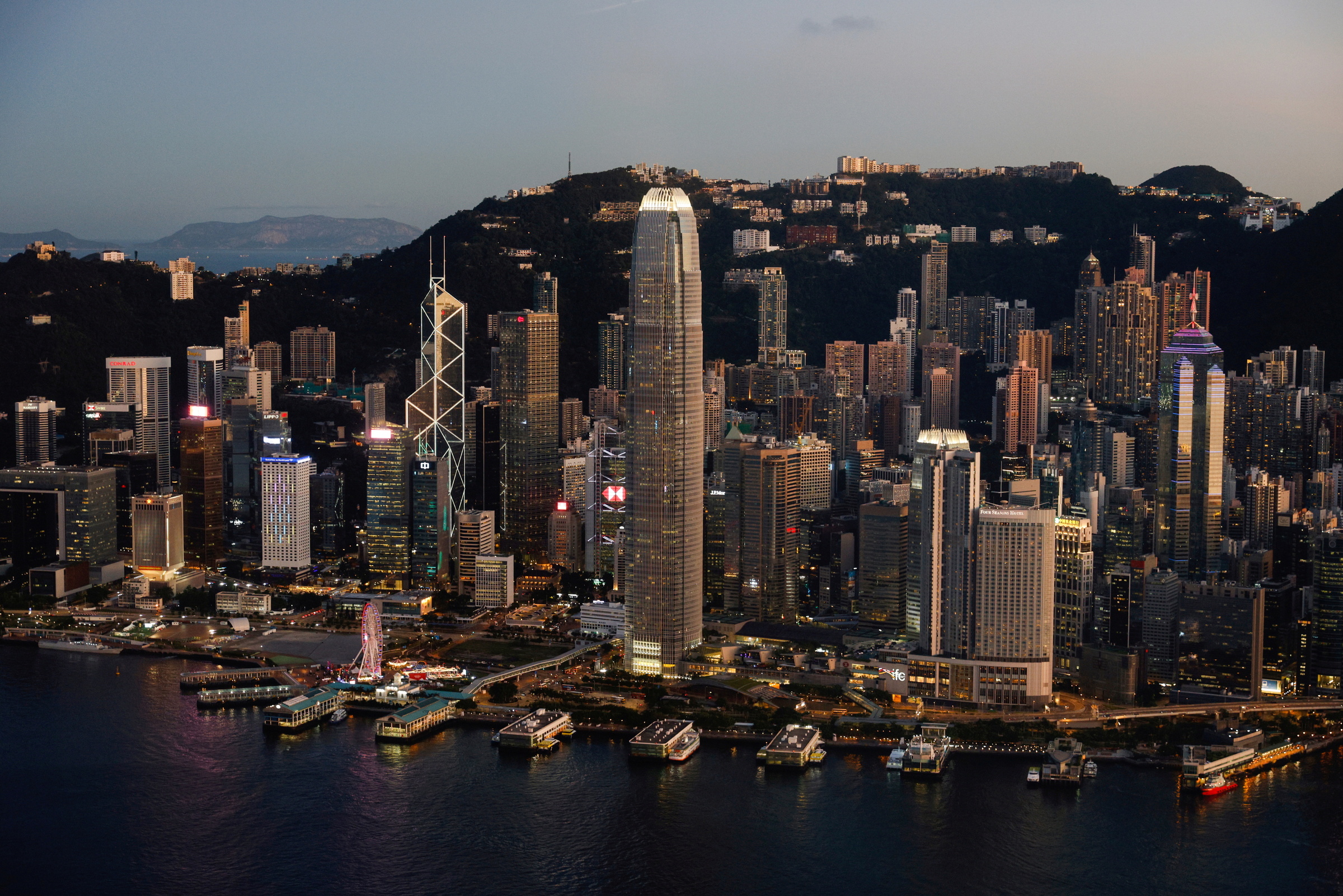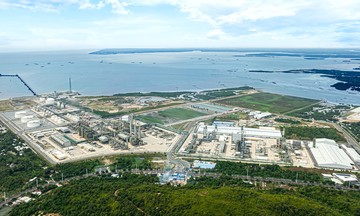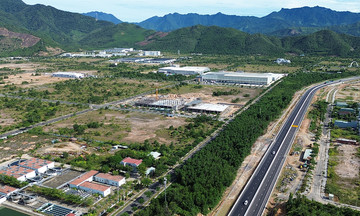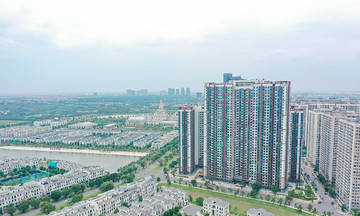Road King became the first Hong Kong-based property developer to default on bonds since the start of China's real estate crisis in 2021. Earlier this year, Emperor International, another Hong Kong developer, defaulted on a loan.
According to LSEG data and Reuters calculations, bond maturities for Hong Kong property developers will increase from 4.2 billion USD this year to 7.1 billion USD in 2026. Edward Chan, an analyst at S&P Global Ratings, anticipates further defaults from smaller developers within the next 12 to 24 months due to banks tightening lending practices.
"At some point, they simply won't be able to repay these loans," Chan said.
 |
A view of Hong Kong on 13/7/2021. Photo: Reuters |
A view of Hong Kong on 13/7/2021. Photo: Reuters
Among the developers facing dwindling liquidity, New World Development, one of Hong Kong's top 4 developers, has 168 million USD in bond repayments due next year and another 630 million USD in 2027. Lai Sun Development faces 524 million USD in payments next year.
New World, burdened with 23 billion USD in debt and considered a major risk to Hong Kong's financial and property markets, recently averted default by securing an 11.2 billion USD refinancing deal in June.
Real estate and related sectors account for about 25% of Hong Kong's GDP. Developers holding office and retail properties are under significant pressure due to the difficulty of selling assets to raise cash. These two sectors have lost over 50% of their value since their 2019 peak, with no signs of recovery. According to Chan, further asset sales will exacerbate declining valuations and impact the entire industry.
Much of the debt held by Hong Kong property developers comes from bank loans. In a sign of increasing bad debt, Hang Seng Bank set aside nearly 320 million USD in provisions for commercial real estate loans in the first 6 months of this year, a 224% increase compared to the same period in 2024.
HSBC also reported a tripling of its high-risk, but not yet defaulted, commercial real estate loans, reaching 18.1 billion USD by the end of June. The bank clarified that classifying loans as high-risk does not necessarily indicate complete credit deterioration, and market fluctuations can increase this classification without leading to actual defaults.
Commercial real estate accounts for about 9% of total outstanding loans in Hong Kong. Up to 70% of these loans are collateralized at about 45-55% of the property value, according to S&P. The company forecasts an increase in the non-performing loan ratio within the local banking system. However, Eddie Yue, Chief Executive of the Hong Kong Monetary Authority, stated that the banking system "is well-capitalized, has ample liquidity, and strong financial capacity to weather market volatilities".
Some banks have chosen not to classify defaulted loans as defaults or demand immediate repayment from struggling developers, fearing asset quality deterioration and a potential domino effect across the industry.
Several banks are also avoiding foreclosure on collateralized properties to prevent exacerbating the oversupply in the market. "Banks are actively choosing not to call in loans aggressively. They want to give the market time to recover," said Joseph Tsang, Chairman of JLL Hong Kong.
Anh Ky (Reuters)












